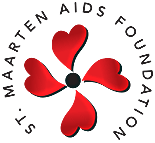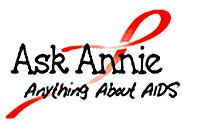knowledge is power get informed
when someone you know has hiv
When someone in your family tests positive for HIV, you may feel a range of emotions. Among fear, confusion, regret and love for the person afflicted, you may also feel afraid for your own personal well-being and may have questions about just how “contagious” HIV may be.
Rest assured that people with HIV can live at home and maintain a normal social life. Since the virus is not spread by casual (i.e., non sexual) household contact, family members, roommates, and visitors are not at risk of becoming infected.
The following information is provided to clarify what should and should not be done in living with someone with HIV. You will see that most of it is just good hygiene practices.
Hand washing is an effective way to prevent the spread of any germs. Wash hands with soap and water before preparing food, before eating, and after using the toilet. This is to protect both the infected and uninfected family members – remember that a person living with HIV may have a weak immune system and therefore may be more likely to catch any type of infection from another person. They, too, are vulnerable.
Personal Articles such as toothbrushes, razors and razor blades should not be shared among household members. These may become soiled with blood and could spread germs that may cause many illnesses.
Bathrooms may be shared with other family members. Family members will not contract infections from the toilet seat, sink, shower, or bathtub. Surfaces (e.g. floors, countertops, sinks, showers, bathtubs) visibly soiled with blood or excretions should be cleaned with a household detergent or disinfectant (freshly prepared solution of one part household bleach with 10 parts cold water will kill HIV and other germs). To further protect yourself, you can wear household gloves or disposable gloves.
The infected person may prepare food for other household members. HIV is not spread through food. As before, hand washing is important before handling food to prevent spread of other germs. Cooking will kill any germs.
Wash dishes in hot soapy water. No special precautions are necessary. There is no need to wash separately the dishes used by the infected person.
Normal household waste can be disposed of without additional precautions. A separate container, lined with a plastic bag, should be available for waste such as dressings, tissues and other disposable items soiled with blood from an infected person.
No special precaution is necessary for normal laundry. Clothing and linens can safely be washed with that of other household members. Laundry visibly soiled with blood, urine, stool or vomit should be wiped clean with a disposable towel and laundered in hot, soapy water. Heavily soiled clothing or linens should be placed in a plastic bag separate from other household laundry; the contents should be removed from the bag and washed in hot soapy water. Disposable gloves should be worn when wiping soiled areas clean. If dry cleaning is necessary, any visible moist soiled areas should be wiped with a damp paper towel that should be discarded with other waste from the infected person.
Household pets are not dangerous to these infected persons provided the animals are healthy and have up to date immunization. If the infected individual cleans litter boxes, fish tanks, or birdcages, rubber gloves should be worn and hands washed immediately following removal of gloves.
Socializing
Infected persons can maintain a normal social life. No special precautions are required when visiting friends, eating in restaurants or engaging in casual day to day contact with others. Normal casual contact, such as kissing and hugging, does not pose any danger of transmission.
Caring for an HIV+ Family Member or Friend
HIV cannot penetrate healthy skin. In order for it to enter the body, there must be a break in the skin. As a safeguard against contact with blood or body fluids, a person providing care for bleeding wounds should wear disposable gloves. This is a precautionary measure to ensure that the person is not exposed to the virus through tiny cuts in the hands that may be unnoticed.
The infected person should reserve a thermometer for personal use. It should be washed with warm soapy water after each use, soaked in rubbing alcohol for 10 minutes, dried and stored.
Sex with a Partner that is HIV+
Condoms should be used during all sex acts, whether it be oral, anal or vaginal intercourse. Condoms uses correctly and consistently form very good protection against infection with HIV and most other sexually transmitted diseases.
When using condoms, check the expiration date. Condoms kept in a cool and dark place can be used for 4 years after the manufacturing date. Never use oils, creams or Vaseline for extra lubrication when using condoms. Use a water or silicon based lubricant such as KY-Jelly or other brand.
There has been no evidence of spread of HIV infection through saliva. Kissing, including tongue/deep kissing is safe. However, if there are bleeding gum irritations in the mouth deep kissing should be avoided.
Counseling and Support
Family members may experience feelings of fear, confusion and sadness. It is important for these persons to seek expert counseling. The St. Maarten AIDS Foundation has counselors available to listen and give advice for friends and family members of HIV infected persons. Your family doctor or church leader may be other good sources of information. Don’t wait – the sooner you seek support the sooner you may find relief and ways to cope.



